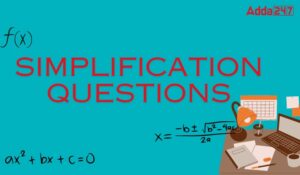Dear IBPS SO Candidates,
Quantitative Aptitude Questions for IBPS SO Pre 2017
Here are Quantitative Aptitude for IBPS SO Prelims 2017. Quantitative Aptitude is a very important section you must prepare if you are aiming for a job in Bank or Insurance sector. These two weeks are very important as IBPS SO Prelims and IBPS Clerk Mains are lined up. So, these 15 questions can help you practice three very important topics of Quant Section.
Q1. Weight of a sumo is jointly varies as his height and his age. When height is 1.2 m and age is 20 years, his weight is 48 kg. Find the weight of the sumo when his height is 1.5 metre and age is 30 years:
(a) 60 kg
(b) 72 kg
(c) 90 kg
(d) 58 kg
(e) none of these
Q2. A couple got married 9 years ago when the age of wife was 20% less than her husband. 6 years from now the age of wife will be only 12.5% less than her husband. Now they have six children including single, twins and triplets and the ratio of their ages is 2 : 3 : 4 respectively. What can be the maximum possible value for the present age of this family?
(a) 110 years
(b) 103 years
(c) 105 years
(d) 83 years
(e) none of these
Q3. In Maa Yatri Temple every devotee offers fruits to the orphans. Thus every orphan receives bananas, oranges and grapes in the ratio of 3 : 2 : 7 in terms of dozen. But the weight of a grape is 24 gm and weight of a banana and an orange are in the ratio of 4 : 5, while the weight of an orange is 150 gm. Find the ratio of all the three fruits in terms of weight, that an orphan gets:
(a) 30 : 25 : 14
(b) 180 : 150 : 82
(c) 75 : 42 : 90
(d) 71: 63 : 67
(e) none of these
Q4. There are five boxes in a cargo hold. The weight of the first box is 200 kg and the weight of the second box is 20% higher than the weight of the third box, whose weight is 25% higher than the first box’s weight. The fourth box at 350 kg is 30% lighter than the fifth box. Find the difference in the average weight of the four heaviest boxes and the four lightest boxes.
(a) 51.5 kg
(b) 75 kg
(c) 37.5 kg
(d) 112.5 kg
(e) None of these
Q5. A machine depreciates in value each year at the rate of 10% of its previous value. However, every second year there is some maintenance work so that in that particular year, depreciation is only 5% of its previous value. If at the end of the fourth year, the value of the machine stands at Rs 1,46,205, then find the value of machine at the start of the first year.
(a) Rs 1,90,000
(b) Rs 2,00,000
(c) Rs, 1,95,000
(d) Rs 2,10,000
(e) None of these
Directions (Q.6 – 10): Study the following pie chart which shows the percentage of total number of aspirants applied for various Govt. examinations in 2016 organized by various PSUs.
Q6. Average number of aspirants applied for a Govt. exam is approximately how many times the total no. of vacancies?
(a) 7
(b) 2
(c) 4
(d) 8
(e) 11
Q7. If PGCIL reduces two-fifth of its vacancies, then total vacancies will be reduced by how much percent(upto two decimal place)?
(a) 13.56%
(b) 14.56%
(c) 18.2%
(d) 17%
(e) None of these
Q8. What will be the approximate difference between no. of aspirant per post in ONGC to the no. of aspirant per post in NTPC?
(a) 11
(b) 9
(c) 5
(d) 2
(e) 1
Q9. For each vacancy, 4 will be selected for interview after written exam and one will be finally selected. If no. of vacancies of NTPC increased by 10%. No. of aspirants qualified for Interview for NTPC is approximately how many times the no of aspirants qualified for interview in BHEL and GAIL together.
(a) 3
(b) 3.5
(c) 5
(d) 4.5
(e) 2
Q10. Out of all vacancies allocated, 15% of the selected aspirants didn’t join. Hence 8% of the NTPC and 10% of PGCIL vacancies remain unfulfilled. What is approximate percent of total vacancies remain unfulfilled for NTPC and PGCIL to the rest of the organizations vacancy which remain unfulfilled.?
(a) 33
(b) 44
(c) 55
(d) 50
(e) 60
Directions (11-15): What should come in place of question mark (?) in the following number series?
Q11. 12, 12, 18, 36, 90, 270, 945, ?
(a) 3780
(b) 4725
(c) 2835
(d) 3307.5
(e) 4252.5
Q12. 444, 467, 513, 582, 674 , 789, ?
(a) 950
(b) 904
(c) 927
(d) 881
(e) 973
Q13. 40280625, 732375, 16275, 465, 18.6, 1.24, ?
(a) 0.248
(b) 0.336
(c) 0.424
(d) 0.512
(e) 0.639
Q14. 963, 927, 855, 747, 603, 423, ?
(a) 209
(b) 208
(c) 207
(d) 206
(e) 205
Q15. 10, 15 , 35, 110, 445, 2230, ?
(a) 13385
(b) 11155
(c) 15615
(d) 13390
(e) 8925
You may also like to Read:
- Quantitative Questions for upcoming Banking and Insurance Examinations
- Study Notes of Quantitative Aptitude
- Practice More Data Interpretation Questions
- Quantitative Aptitude Section Strategy





 Simplification Questions For Bank Exams ...
Simplification Questions For Bank Exams ...
 Quantity Comparison Questions for Bank E...
Quantity Comparison Questions for Bank E...
 Mixture & Alligation Questions for B...
Mixture & Alligation Questions for B...





